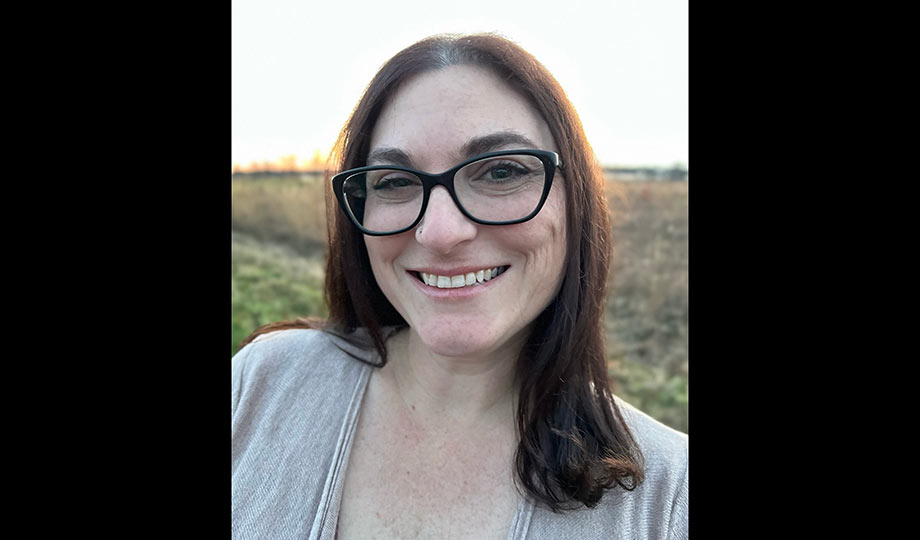The Human Services program is dedicated to providing quality instruction and in-depth clinical training for students interested in serving and assisting people in the areas of addictions, applied gerontology, corrections, developmental disabilities, domestic/family violence and residential child care.
Human Services programs expose students to comprehensive theoretical instruction as well as expert clinical training and practical experience. In addition to certificate or degree options, many working professionals choose to complete Human Services coursework at COD for Continuing Education Units (CEUs).

All Human Services programs are accredited by the Illinois Certification Board.
Watch a video to learn more about Human Services.
Determine Your Path
Students who graduate from Human Services are prepared to enter the workforce in entry-level positions or transfer their credits to a four-year college or university for advanced education and training.
You want to attend a credible college that stands out from the rest. At COD, you'll discover:
- Dedicated Human Services faculty comprised of psychologists, social workers, licensed counselors and marriage/family therapists who can share their specific training and experiences with students.
- Interactive courses with instruction in top-notch facilities and on-cutting edge equipment.
- Flexible schedules with day and evening classes, online learning and hybrid classes.
- Practical, hands-on experience as well as classroom-based studies.
- An innovative transfer program with National Louis University that offers a seamless transfer of credits for students who want to earn their bachelor's degree.
- Program accreditation from the Illinois Certification Board.
Accreditation Information
Addictions Counseling
College of DuPage is one of a handful of colleges in the state to offer an approved Addiction Counseling degree and certificate for addictions counseling. In addition to addiction-related issues, students in the addictions counseling program study contemporary treatment approaches, behavior modification, cross-cultural communications, ethics in counseling, family education and treatment models, group dynamics, interpersonal dynamics and psychopharmacology.
Following the completion of classroom work, students participate in one to two 300-hour field placement(s) at inpatient, outpatient and partial hospital substance abuse treatment centers; DUI remediation programs; and other appropriate affiliated sites.
Upon completion of the basic program, students are eligible to sit for the certification exam offered by the Illinois Alcohol and Other Drug Abuse Professionals Certification Association Incorporated (IAODAPCA). After passing the test, students are classified by IAODAPCA as "certificate eligible" and will receive full certification (CADC) with an additional 2,000 to 4,000 paid work hours (depending on their academic degree).
Human Services Generalist
The Human Services Generalist degree focuses on general training and learning experiences that provide students with essential knowledge, skills and attitudes needed to help people. The program takes a broad approach for students who intend to continue their education and training at the baccalaureate, master's or doctorate degree level.
Students in the generalist program study contemporary treatment approaches, behavior modification, cross-cultural communications, ethics in counseling, family education and treatment models, crisis intervention, advocacy, interpersonal dynamics, addictions counseling and psychiatric rehabilitation.
Addictions Counseling
The Addictions Counseling certificate provides accredited training to work with clients and their families on addictions and related problems. This program is approved by the Illinois Certification Board. A minimum of an Associate in Arts or Associate in Science degree is required for Certified Alcohol and Other Drug Abuse Counselor (CADC) certification.
Applied Gerontology
Students in Applied Gerontology learn to meet the emotional, social and biological needs of older adults in traditional settings as well as adult day care centers, park districts and assisted living facilities. Coursework is geared toward understanding the developmental, cognitive, social and financial needs of this population.
Students study older adult care management, contemporary treatment approaches, behavior modification, cross-cultural communications, ethics in counseling, family education and treatment models, grief counseling, interpersonal dynamics, advocacy and developmental psychology.
Co-occuring Disorders
Students who complete the Co-occuring Disorders certificate gain a solid foundational knowledge of people who experience both mental illness and substance use disorder. The skills and attitudes emphasized in this program of study will help prepare students to work with this population.
Corrections Counseling
The Corrections Counseling certificate offers a broad range of opportunities in institutional and community settings. Students study contemporary treatment approaches, behavior modification, cross-cultural communications, addictions, ethics in counseling, family education and treatment, as well as the criminal and juvenile justice systems.
Following the completion of classroom work, students must finish 300 hours of fieldwork to earn a Corrections Counseling degree or certificate.
Developmental Disabilities
The Developmental Disabilities certificate prepares students to work with a wide range of special populations, including developmentally challenged individuals and people with physical and/or cognitive challenges.
Students in program are trained to work with either child or adult populations. The program provides an introduction to developmental disabilities as well as an overview of contemporary treatment approaches, behavior modification, cross-cultural communications, addictions, ethics in counseling, family education and treatment models, crisis intervention, advocacy, interpersonal dynamics, group dynamics and developmental psychology.
Following the completion of classroom work, students must finish 300 hours of fieldwork to earn a Developmental Disability degree or certificate.
Domestic/Family Violence
The Domestic/Family Violence certificate prepares students for entry-level human services work in a domestic violence agency.
In addition to 40 hours of domestic violence training provided in Human Services 1180, the program covers interpersonal and group dynamics, contemporary treatment approaches, behavior modification, cross-cultural communication, addictions, ethics in counseling, family education and treatment methods, advocacy, child abuse dynamics, crisis intervention and developmental psychology.
Following the completion of classroom work, students must finish 300 hours of fieldwork to earn a Domestic/Family Violence degree or certificate.
Human Services Generalist
The Human Services Generalist certificate prepares students for entry-level human services work with a broad range of populations.
Recovery Support Specialist
The Recovery Support Specialist certificate trains students to become Certified Recovery Support Specialists (CRSS) or Certified Peer Recovery Specialists (CPRS) in Illinois.
The training meets certification standards for education and practical experience hours and it prepares students to enter the professional field of recovery support.
Residential Childcare
The Residential Child Care certificate prepares students for entry-level positions as counselors and case managers for children with emotional problems.
Students in the Residential Child Care program study interpersonal and group dynamics, residential child care, contemporary treatment approaches, behavior modification, cross-cultural communication, addictions, ethics in counseling, family education and treatment models, advocacy and the dynamics of child abuse.
Following the completion of classroom work, students must finish 300 hours of fieldwork to earn a Residential Child Care degree or certificate.
Veterans Counseling
The Veteran Counseling certificate is a 26-credit-hour program that provides specialized training for individuals working with veterans. The program includes a required 300-hour clinical fieldwork experience, qualifying students for an entry-level position upon completion.
The certificate is aimed at both undergraduate students who are interested in working with veterans in a variety of social service settings and practicing clinicians already working in the field.
Addictions Counselor Certification
College of DuPage offers an Addictions Counselor Master's Track Certification program for students who have earned or are in their second year of earning, a Human Services-related master's degree. The Master's Track Addictions Counselor Certification program is entirely online.
To be accepted into the master's track, a student must provide a transcript from an accredited clinical graduate program and meet with a full-time faculty member in Human Services to verify course equivalencies.
Upon completion of the training program and successfully passing the certification exam for addictions counselors, the student can be recognized as a Certified Alcohol Drug Counselor (CADC) in Illinois.
For program information, contact Jason Florin at (630) 942-2043 or florin@cod.edu.
The Certified Alcohol Drug Counselor (CADC) exam can be taken on a computer at a COD designated site. The exam consists of 100 multiple choice questions. Students will be given two hours to complete. A passing score of 78 is required.
CADC exam questions cover basic knowledge areas relevant to addictions counselor functions including:
- Clinical Evaluation: 16 questions
- Treatment Planning: 11 questions
- Counseling: 15 questions
- Case Management and Referral: 22 questions
- Documentation: 14 questions
- Client, Family, and Community Education: 8 questions
- Professional and Ethical Responsibilities: 14 questions
There is a $75 application fee; $175 test fee and $135 certification fee. Learn more about preparing for the exam.
CADC certification is good for two years. In that time, you must earn 40 hours of CEUs to maintain the credential. The Illinois Certification Board (IAODAPCA) offers additional certifications including CRADC, CSADC, CAADC, PCGC, MISA I and II.
Illinois Certification Board
401 E. Sangamon Ave.
Springfield, IL 62702
Phone: (800) 272-2632
Get Started Today
The first step to getting started in human services is to apply for admission.
Academic and Career Pathways give you a roadmap to achieving your career goals. Follow a pathway based on your degree that outlines which classes you need to take and when so you graduate on time or move on to the next phase in your career.
- Addictions Counseling, A.A.S.
- Addictions Counseling, Certificate
- Applied Gerontology, Certificate
- Co-Occurring Disorders, Certificate
- Corrections Counseling, Certificate
- Developmental Disabilities, Certificate
- Human Services Domestic/Family Violence, Certificate
- Human Services Generalist, A.A.S.
- Human Services Generalist, Certificate
- Residential Child Care, Certificate
- Veteran Counseling, Certificate
Human Services Program graduates will:
- Demonstrate skill in therapeutic interpersonal interactions.
- Identify assessment tools used with human service populations.
- Demonstrate a commitment to personal growth and self-awareness.
- Recognize the unique needs of various populations.
- Describe and demonstrate a variety of research-based treatment approaches.
- Identify resources available to various populations.
- Synthesize information from multiple sources.
- Evaluate ethical standards in human services.
College of DuPage has several human services transfer agreements in place with four-year colleges and universities to save you time, money and make the transfer process easier.
Many of these agreements with other colleges and universities have specific course requirements and a pre-determined course plan that needs to be followed to be eligible to transfer. Contact a program faculty member or academic advisor to learn more as course requirements vary by institution.
Career Information
Explore careers based on your interest, location and salary range or view top occupations by income.
Frequently Asked Questions
Find answers to your frequently asked questions regarding the human services program.






